Real change cannot be enacted from a detached, theoretical perspective, nor can it be achieved if our goal is to simply feed our ego or gain plus points in heaven.”
According to a recent report by Asian Development Bank, 16.6% of Filipinos still live below the poverty line and are thus unable to afford their basic needs. This statistic is bound to tug at our heartstrings, especially if we know we are in a position of financial stability and thus capable of extending help in many of its forms.
We Filipinos would take it upon ourselves to collect bags of donations, prepare programs with games and song numbers, and march to the nearest disenfranchised community. After hours of making small talk and shaking hands with the residents, our messianic journeys culminate in a wake-up call, a moment of self-actualization: We are much more blessed than we could ever imagine, and thus it is our duty to step down from our ivory towers to help the underprivileged. Sometimes, our learnings are summarized in Facebook posts or Medium think pieces, complete with photographic evidence: perhaps a child in tattered clothing, flashing a bright, toothless smile – a stark contrast to their gloomy surroundings.
This situation is much more common than we think, and sadly, that isn’t a good thing. In fact, it’s indicative of the savior complex found among privileged members of society. This term was once associated with white people, due to their history of colonizing ancestral lands and coercing its inhabitants to adapt to their existing notions of progress. Nowadays, it’s a blanket term for anyone in a position of power – be it in terms of higher education attainment or financial status – who feels the need to rescue the economically poor from their current state and be their hero.
When we enter the lives of the marginalized and appoint ourselves as the giver and them as the receiver, we tend to approach their problems with our own ideas of aid in mind: relief goods, loans, or even long-term livelihood projects. In an article by Sojourners, Ryan Kuja says that by doing so, we hinder dialogue with local leaders, organizations, and stakeholders. Over time, this evolves into paternalism, where we continue to do things to or for others instead of teaching them how to fend for themselves. In instances like this, the poor can’t help but think that they aren’t intelligent or capable enough to address their own needs, that they are at the mercy of outsiders who will never even fully understand where they’re coming from.
We rob them of their agency and sow feelings of shame and helplessness, which bleed into other aspects of their lives like their personal relationships and careers.
Who should have the final say regarding which projects are designed and implemented: the residents who have lived there their entire lives, or the strangers who barge in with nothing but textbook knowledge of community development and pockets full of cash?
To add insult to injury, the recipients of our assistance are often made the poster boys and girls of fundraising campaigns: photographed in a way meant to romanticize their suffering and convince other people to develop savior complexes of their own. It’s a sick and twisted cycle that has gone unchallenged and unquestioned for so long, solely because it has been masked by good intentions.
When the implications of our actions are worded this way, there is a tendency to get defensive: after all, we’re just trying to help by making use of the resources and knowledge we’ve acquired. In fact, we should be thanked for what we do. It makes sense at first, but let’s look at it this way. Who should have the final say regarding which projects are designed and implemented: the residents who have lived there their entire lives, or the strangers who barge in with nothing but textbook knowledge of community development and pockets full of cash?
In her piece for Adolescent, Lauren Ritchie explains that sometimes, possessing a university degree or unlimited access to basic human needs inflates our sense of self-importance. This perpetuates the elitist mindset that the educated and privileged are automatically the supreme authority in any field they choose to dabble in. Criticism and feedback are unsolicited and consequently ignored as a result, even if it comes from those who will be affected most by our actions.
Real change cannot be enacted from a detached, theoretical perspective, nor can it be achieved if our goal is to simply feed our ego or gain plus points in heaven. Sometimes, it starts with lowering our pride, admitting that we do not know it all, and asking what we can do to help through community forums and immersions.
Last summer, I visited a community in Rizal and stayed with a foster family for three days and two nights, as partial fulfilment of my requirements for Theology class. I personally experienced how easy it was to develop preconceived notions of what the residents need: food, water, even just a temporary companion. But their main problems were far more complex than anything we could have ever imagined. We listened to the fishermen grieve about unstable income brought by the rainy season, and their wives complain about livelihood for them was either weaving products out of water lilies, or nothing at all. One mother even expressed her desire for inclusive education for her deaf and mute daughter, which I wouldn’t have figured out until she tried to speak to me in American sign language.
Once we gain a deeper understanding of what they’re going through, it’s time we empower them to fill in these gaps. Teach them the skills needed to pull themselves out of destitution, provide them with the platform they need to voice out their concerns, or simply refer them to any connections whom they can approach – anything, as long as we are merely the catalyst for their action.
There’s a famous metaphor that references this concept of empowerment: we must teach an individual to fish, instead of giving them fish. Doing the former allows them to be self-sufficient, as opposed to simply receiving what others are willing to give.
Of course, it helps to allow our solidarity with them to reflect in our everyday actions. For instance, if we learn of the importance a few hundred pesos can make in the lives of small businesses, we can choose to allot a portion of our earnings to purchase from local vendors. Maybe we can advocate for fair wages and working hours for laborers across all industries. There’s even power in exercising suffrage: if we encounter groups whose plight is not even recognized by our current administration, it would make all the difference if we got behind candidates who took them into consideration. In this way, we do our part in pushing for systemic reform without overshadowing those we wish to serve.
We are not here to swoop in from the sky and save them from their current state. To achieve true and inclusive progress, we must relegate ourselves to life as the sidekick, whose job is to help the real hero of the story.
It’s not automatically a bad thing to assume that the best way to express care and concern is by taking action. What makes this behavior problematic is if we refuse to redirect our focus from ourselves to the communities in need of our help. We are not here to swoop in from the sky and save them from their current state. To achieve true and inclusive progress, we must relegate ourselves to life as the sidekick, whose job is to help the real hero of the story.
Read also
-
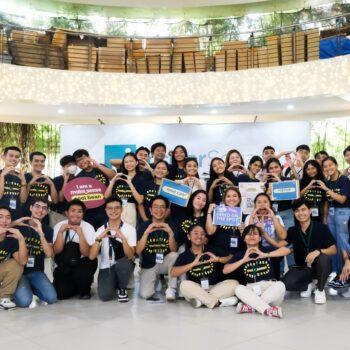 RISE For Youth Wins Award for Tackling Unemployment Among Filipino Youth
RISE For Youth Wins Award for Tackling Unemployment Among Filipino Youth -
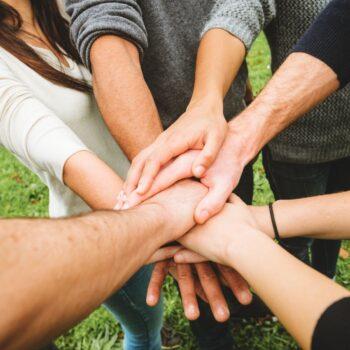 How Three Young Volunteers Help Their Generation Paint a Brighter Future
How Three Young Volunteers Help Their Generation Paint a Brighter Future -
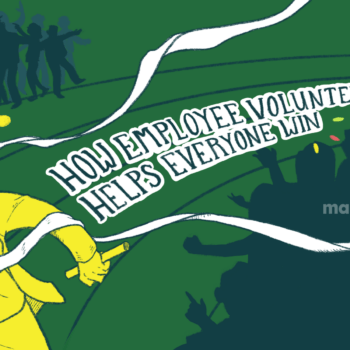 How Employee Volunteering Helps Everyone Win
How Employee Volunteering Helps Everyone Win -
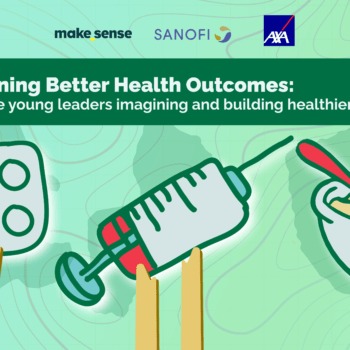 Imagining Better Health Outcomes: Meet the young leaders imagining and building healthier futures
Imagining Better Health Outcomes: Meet the young leaders imagining and building healthier futures -
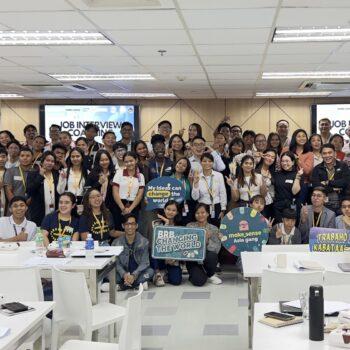 Designing CSR Programs That Actually Make a Difference
Designing CSR Programs That Actually Make a Difference
